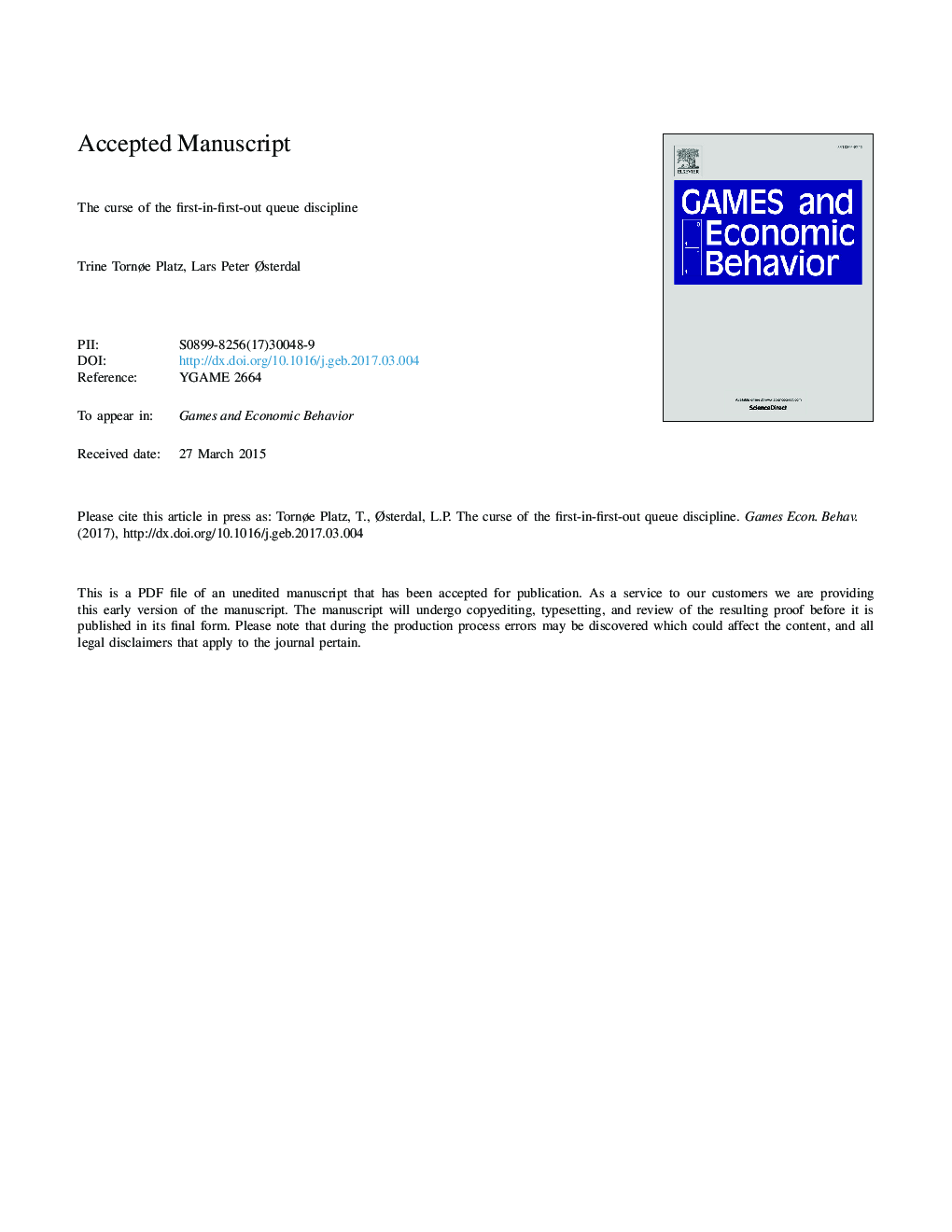| Article ID | Journal | Published Year | Pages | File Type |
|---|---|---|---|---|
| 5071329 | Games and Economic Behavior | 2017 | 29 Pages |
Abstract
We consider a game in which a large number of identical agents choose when to queue up at a single server after it opens. Agents are impatient for service and also incur a cost proportional to time spent in the queue. We show that the first-in-first-out queue discipline and the last-in-first-out queue discipline both lead to a unique equilibrium arrival distribution. However, among all work-conserving queue disciplines, the first-in-first-out performs the worst in terms of equilibrium utility and welfare, while the last-in-first-out performs the best.
Related Topics
Social Sciences and Humanities
Economics, Econometrics and Finance
Economics and Econometrics
Authors
Trine Tornøe Platz, Lars Peter Ãsterdal,
